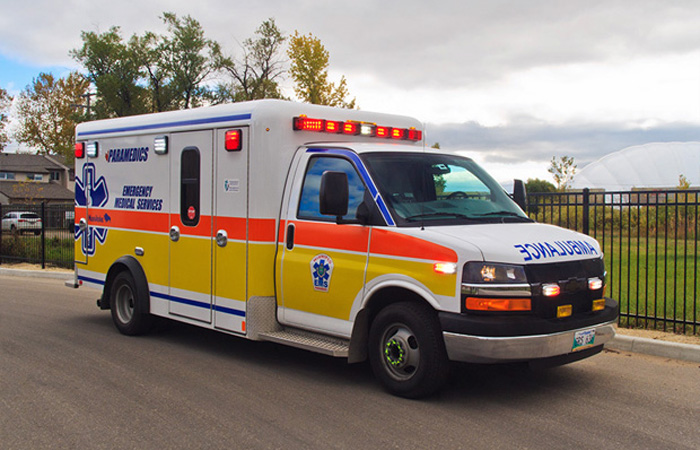A new drug protocol will allow paramedics to administer Olanzapine to agitated people who have used methamphetamine and are at risk of suffering psychosis.
“Paramedics have seen first-hand how a person’s behaviour can quickly change when they’re using meth,” said Health, Seniors and Active Living Minister Cameron Friesen. “By granting paramedics the ability to administer Olanzapine, we are giving them another tool to protect their patients, themselves and others.”
The new drug protocol, approved by the provincial Emergency Medical Services and Patient Transport Medical Advisory Committee, will come into effect in early December. Olanzapine, an antipsychotic medication, is already used in a variety of clinical settings. The drug helps lessen or prevent the severity of symptoms, such as agitation, for meth users.
“Paramedics are often first on scene,” said Helen Clark, chief operating officer of emergency response services and chief allied health for Shared Health. “Giving them the option to use Olanzapine allows paramedics to help reduce the patient’s agitation, their risk of psychosis, and the risk of harming themselves or others.”
Manitoba is the first jurisdiction in Canada to sanction the use of Olanzapine by paramedics, who provide oral disintegrating tablets to consenting patients following consultation with a supervisor. This practice is currently used in Australia.
“With rising concern around methamphetamine use and its associated psychosis and aggression, we are facing a time where critical action is required,” said Dr. Ginette Poulin, medical director of the Addictions Foundation of Manitoba (AFM). “This enhanced protocol will be an important contribution to responding to the devastating effects of methamphetamine use and empower first responders safely support patients in distress.”
The decision to expand the use of Olanzapine was welcomed by the Paramedic Association of Manitoba, which represents all licensed pre-hospital practitioners in the province.
“We are pleased to see that paramedics across the province will be able to administer Olanzapine in cases of known or suspected methamphetamine use,” said Brent Bekiaris, chair of the Paramedic Association of Manitoba. “These patients can quickly develop paranoia and exhibit violent behaviour even while being assessed, so additional treatment options are needed.”
The use of Olanzapine is the latest in a growing number of initiatives announced by the Manitoba government to help combat rising levels of drug use. This includes the opening of five Rapid Access to Addictions Medicine clinics throughout the province, which have seen nearly 400 people since the first location opened at the end of August.
Additional mental health beds and women’s treatment beds have been opened at Health Sciences Centre Winnipeg and the AFM centre in downtown Winnipeg, respectively. The government has also issued a request for proposals (RFP) from Manitoba-based residential treatment centres to treat people with co-existing mental health and addictions problems who would otherwise be sent out of province for care.




